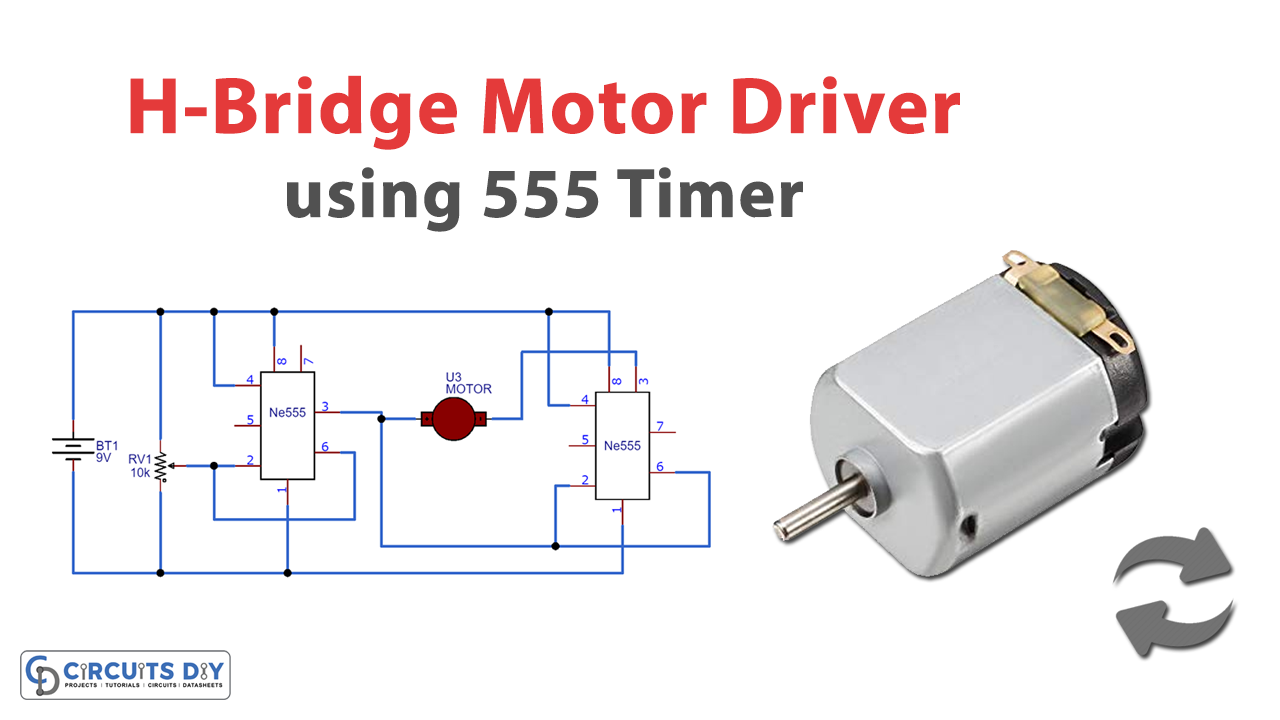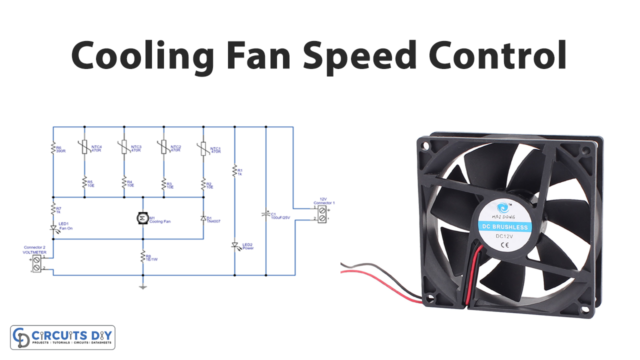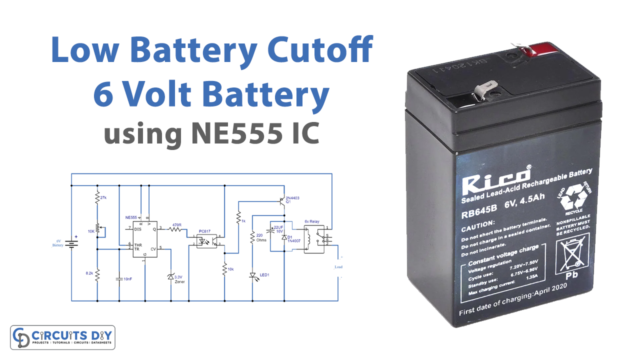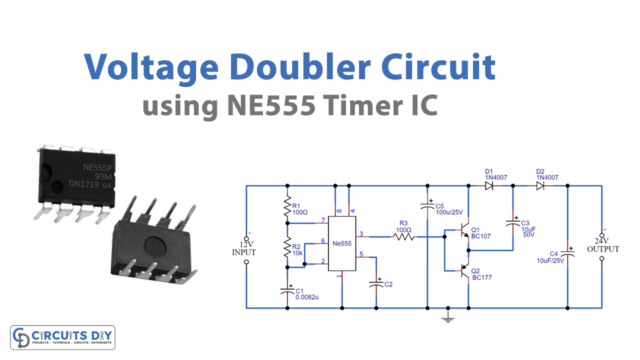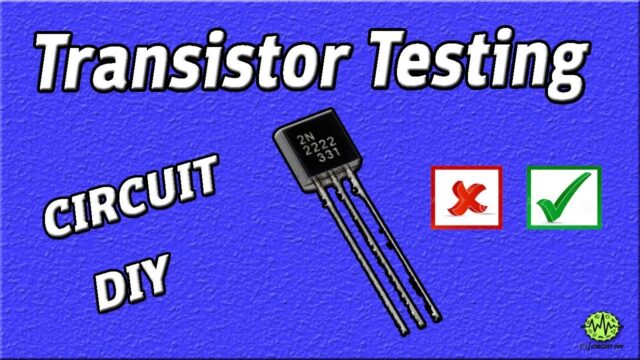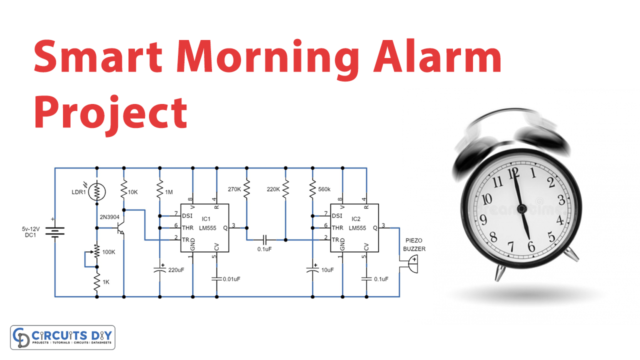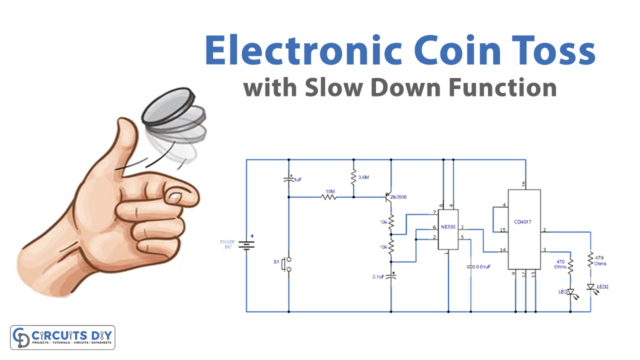H-bridge is a circuit that allows a current to flow in both directions across the load. These circuits are frequently used in robotics to allow DC motors to run in forwarding & backward direction. H bridge circuit mostly contains 4 transistors that drive the motor in both directions.
In this tutorial, we will show you how to make an H bridge circuit using two 555 timer ICs. The 555 timers can be used as a current source or current sink. It can also drive a load having a current rating of up to 200mA, which is sufficient to drive a small DC motor.
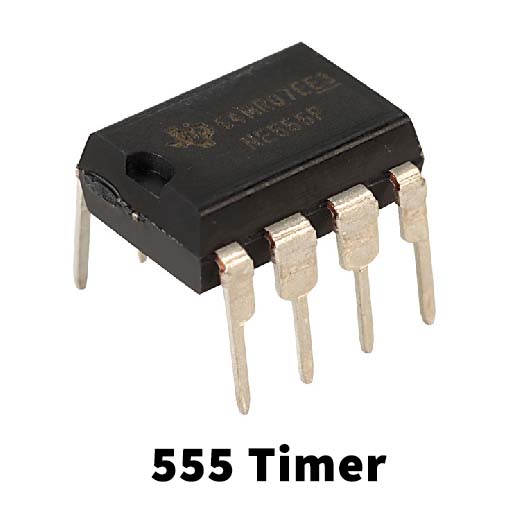
Hardware Components
The following components are required to make Motor Driver Circuit
| S.No | Components | Value | QTY |
|---|---|---|---|
| 1 | IC | NE555 timer | 2 |
| 2 | Potentiometer | 10k | 1 |
| 3 | DC motor | – | 1 |
| 4 | Battery | 9V | 1 |
| 5 | Jumper wires | – | – |
555 IC Pinout
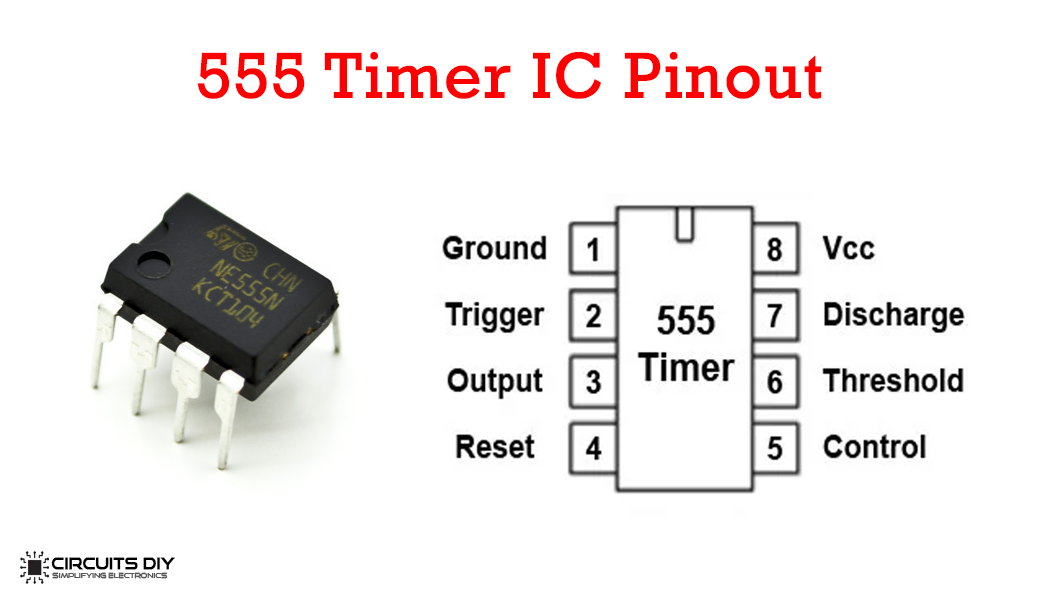
For a detailed description of pinout, dimension features, and specifications download the datasheet of 555 Timer
Motor Driver Circuit
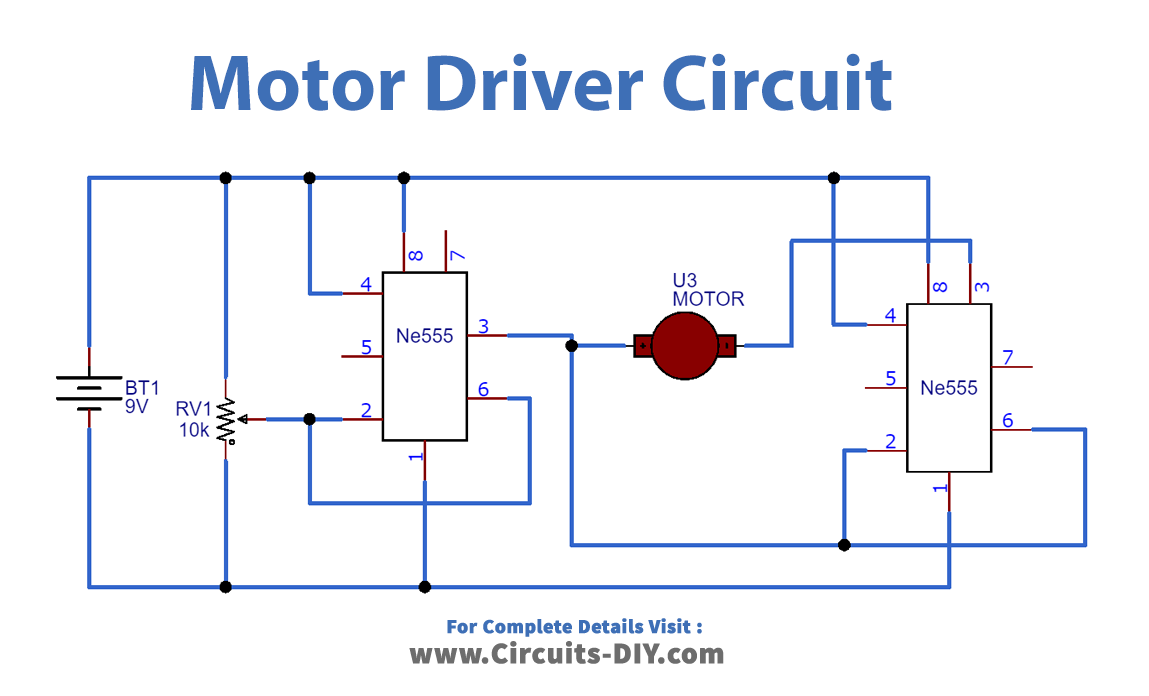
Connections
- Place both the 555 Timer IC on the breadboard
- Connect Pin 4 and Pin 8 of both the ICs to VCC and connect Pin 1 to GND.
- Use a jumper wire to connect Pin 2 and Pin 6 of IC 1 together and then to the Wiper of the Potentiometer.
- Connect the Pin 2 and Pin 6 of IC 2 to the Pin 3 of IC 1.
- Connect both the terminals of the motor to the output Pin 3 of both the ICs.
Working Explanation
For this circuit, we will use two 555 timer IC. The output of both ICs will be connected to the separate terminals of the motor. One of the IC will drive the motor in the forward direction and the other IC will drive it in the reverse direction. The direction of the motor can be controlled with the potentiometer. When we will move the knob of the potentiometer in one direction, the DC motor rotates in one direction and when we move the knob in the opposite direction then the motor also rotates in the opposite direction. By moving the knob of the potentiometer, we will be varying the resistance between Pin 2 and Pin 6 of the IC.
Applications
- H-bridge circuit is used in modern battery chargers for electrical vehicles.
- This circuit can also be used as an inverter circuit.

